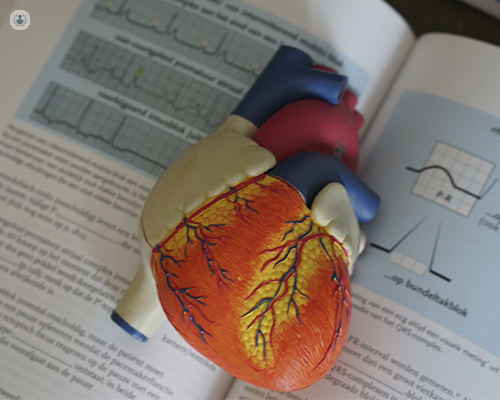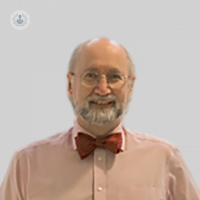Treatment for arrhythmia
Escrito por:When is treatment needed for arrhythmia?
Treatment for arrhythmia is required if it is causing symptoms that are unpleasant or stopping you from doing things. It is also required if it is something that may potentially cause a long term problem, particularly being fatal.
A dangerous arrhythmia must be treated. However, many arrhythmias are harmless. It is only worrying because people think that it must be serious as it is heart related but this isn’t always the case.
Cardiologists work to reassure people that their particular arrhythmia isn’t a problem and that they can safely ignore it.

What is the first line of treatment for arrhythmia?
The first line of treatment is to investigate the arrhythmia. Most symptoms for arrhythmia aren’t due to the effects of the arrhythmia itself on the circulation, but on the effects of the perception of their health.
Cardiologists work to discover if the arrhythmia is not dangerous and therefore reassure the patient. Once they are reassured that nothing needs to be done then that is in itself the treatment.
Cardiologists often find that it is necessary to explain to people that the symptoms are genuinely there. Many symptoms are present and patients don’t notice them because their brain is preocupied. The subconscious will alert them to some symptoms if they have a reason to be worried about it.
If patients find that, for example, a relative has suddenly suffered from a heart attack, their subconcious will notice that they’re having a few atopic beats, which alerts the patient to the fact that they may have the same problem and to seek medical treatment.
Usually once people realise that what their symptoms are not related to an arrhythmia, then gradually it fades into the back of their subconcious and they don’t notice them.
Many people have quite severe arrhythmias which don’t cause problems but are continual, and they don’t even notice them. Cardiologists will try to encourage patients who become aware of their arrhythmias that they do not have to worry about it. Therefore the arrhythmia disappears as a symptom and doesn’t require any treatment
Can arrhythmia be treated permanently?
With SVTs, treatment is normally permanently successful and usually has no long term adverse effects.
In some other cases, where it’s a localised part of the heart that’s casuing the problem, the surgical treatment can be permanently effective.
For atrial fibrillation, it is difficult to know, because cardiologists haven’t been doing it for very long and therefore don’t know how permanently effective it can be. In some cases, it may be but in many cases, atrial fibrillation is only part of a general disease of the heart, which isn’t often dangerous.
It often means that fibrillation will eventually become the established rhythm of the heart, and doctors will have to change to some other form of treatment to deal with it.
In order to discover a treatment, patients need to think about if they want a permanent treatment of arrhythmia in terms of stopping it or a treatment that allows them to live with it.
For arrhythmias that cannot be fixed permanently, doctors can ensure they’re not a problem for the patient.
In a sense, this is permanent treatment but it involves the arrhythmia still continuing and the behaviour of the heart being modified so that the patient tolerates it and isn’t aware.
Similarly in atrial fibrillation, if the rate of the fibrillation is controlled, patients are often quite unaware of it.
One issue with fibrillation is anticoagulation. If the heart is fibrillating all the time, there's a risk of blood clots developing.
If that isn’t recognised and not treated with anticoagulants, there’s a risk of having a stroke.
Risks can be calculated based on age and other factors. When it comes to the point where the risks of having a stroke are worse than the risks of bleeding from anticoagulation, that treatment is advisable. Anticoagulation as part of a treatment to safeguard people is a vital.
Medical treatment for other arrhythmias should be successful because quite often arrhythmias develop as a temporary problem following, for example, a viral infection or a heart attack. They usually only need to be treated for a few months then they settle down and the arrhthymia disppears by itself.
Patients should try treating it medically for a while and see what nature can do for them in terms of solving the problem.


